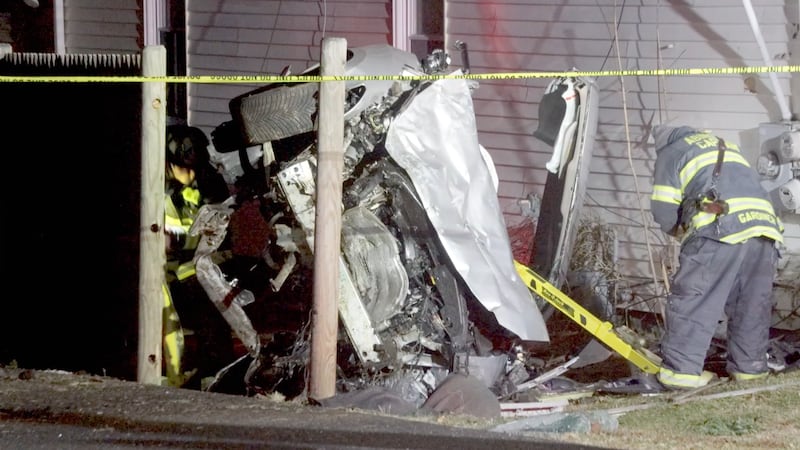BOSTON — Dozens of Massachusetts communities throughout the state are finding they now have a problem with their drinking water.
They exceed new state guidelines for PFAS, so-called forever chemicals because they never disintegrate.
Last October the state lowered the acceptable level of PFAS to just 20 parts per trillion.
Fifty-one public water drinking systems in communities like Acton, Braintree, Brockton, Hudson, Natick, and Wayland are now dealing with levels of PFAS that exceed those new guidelines, according to the State House News Service.
The town of Easton had to take several wells offline. They installed a filtering machine outside a municipal building that residents can use to fill jugs with PFAS-free water.
“Some of the health risks associated with, which are many, included increased risk of different cancers, impacts on reproduction including birth defects,” said Maureo Fernandez y Mora of Clean Water Action in Boston.
Ayer was the first community in the state to build a plant to remove PFAS from the water. A second facility is currently under construction there as well.
Wetzel explained how the water is brought into the new plant and run through filters equipped with a special resin that removes the harmful chemicals.
Ayer sits next to the old Fort Devens, a superfund site near one of the town’s prime sources of water.
Mark Wetzel, Ayer’s Director of Public Works, said “We’ve spent $12 million. For a community of 8,000, that’s a lot of money. It’s a big impact on the water rates.”
Wetzel says each community will have to fine-tune their own strategy to remove the chemicals, that it’s not a one-size-fits-all approach.
“I think it’s very individual to what your problem is, what you have for infrastructure now, what you’re going to need for infrastructure in the future,” Wetzel said.
PFAS are used in a lot of popular products like non-stick pans, make-up, fire-fighting foam, and carpeting.
“When you put these chemicals in products they will invariably end up in landfills,’” said Fernandez y Mora. “They will end up in trash incinerators. They will end up in drinking water because they never go away and now, we’re unfortunately finding out that’s the case.”
This concerns environmentalists like Laurie Nehring of PACE in Ayer. She’s hoping consumers will start to change their habits as more communities wrestle with this problem.
“I’m not surprised that we’re finding it everywhere because it’s in so many products. It’s a chemical or series of chemicals that has so many useful characteristics. I mean I love my Gortex, but I have to be careful about it now,” explained Nehring.
A PFAS task force is currently at work on Beacon Hill to assess the scope of the problem and determine what help communities might need.
The state requires testing of six PFAS although there are thousands of them. Still, the regulations here are considered among the toughest in the country.
There are no national standards.
©2021 Cox Media Group





